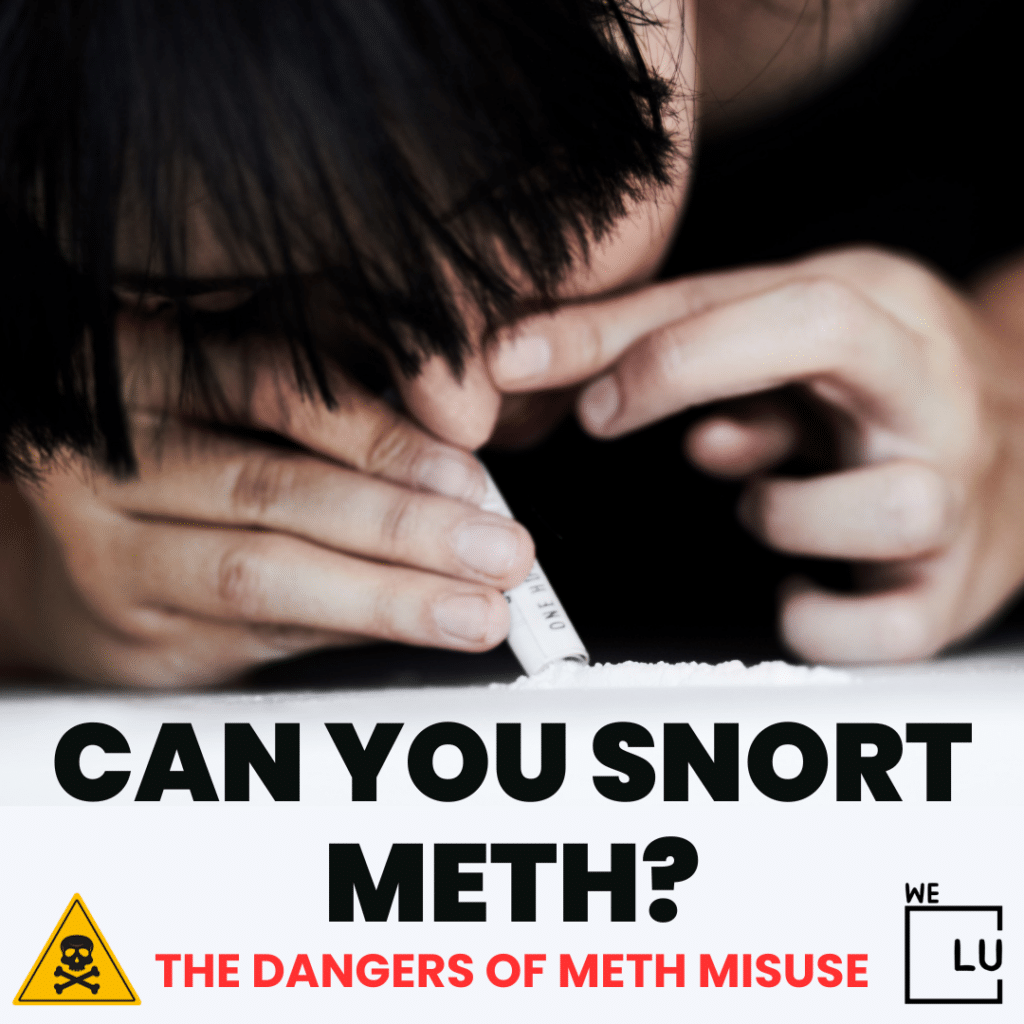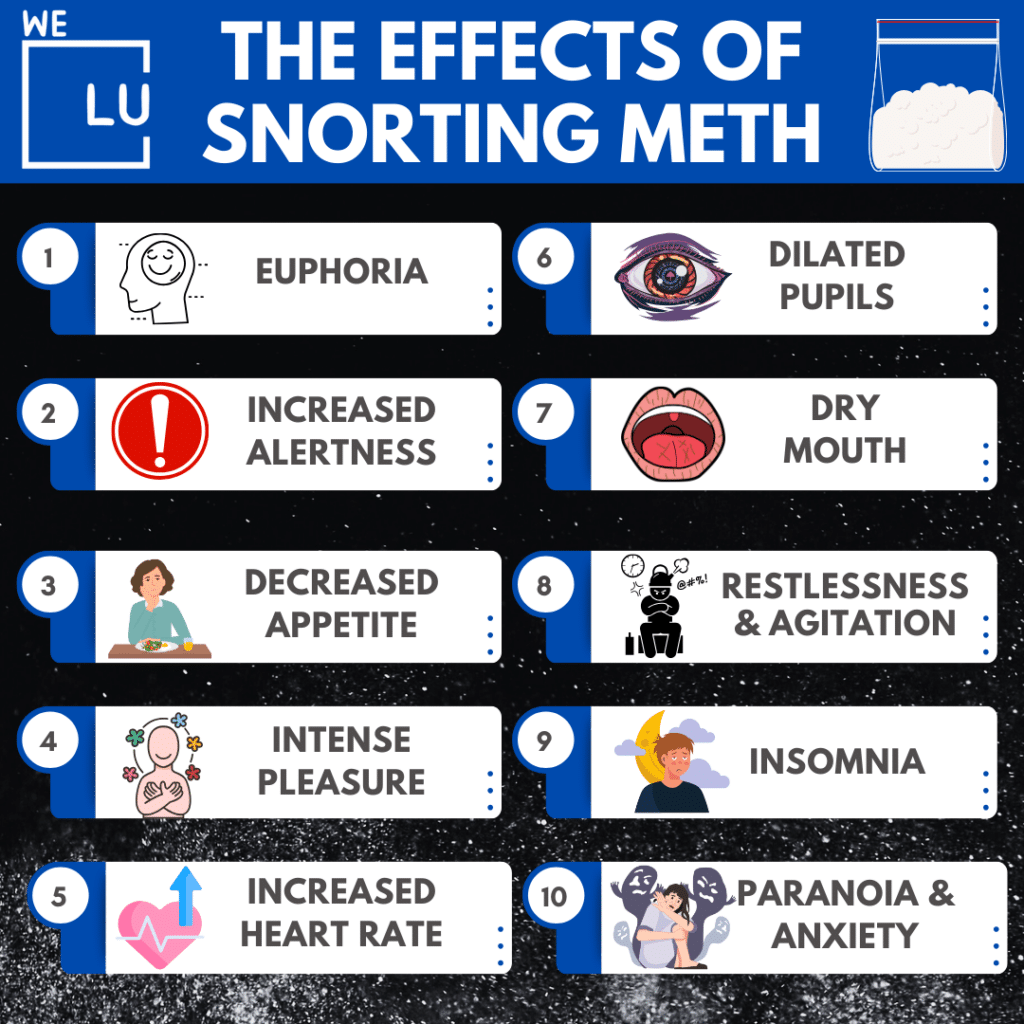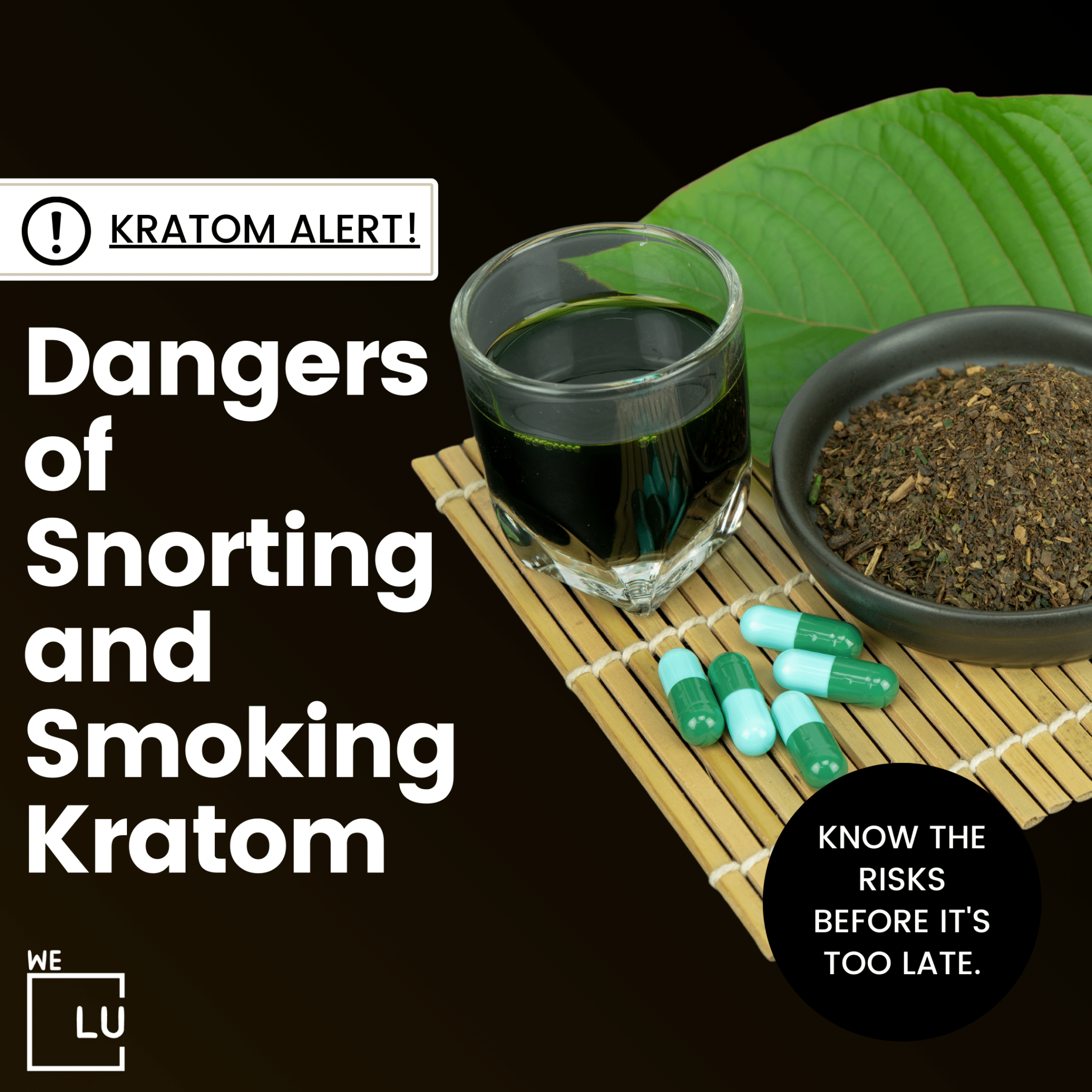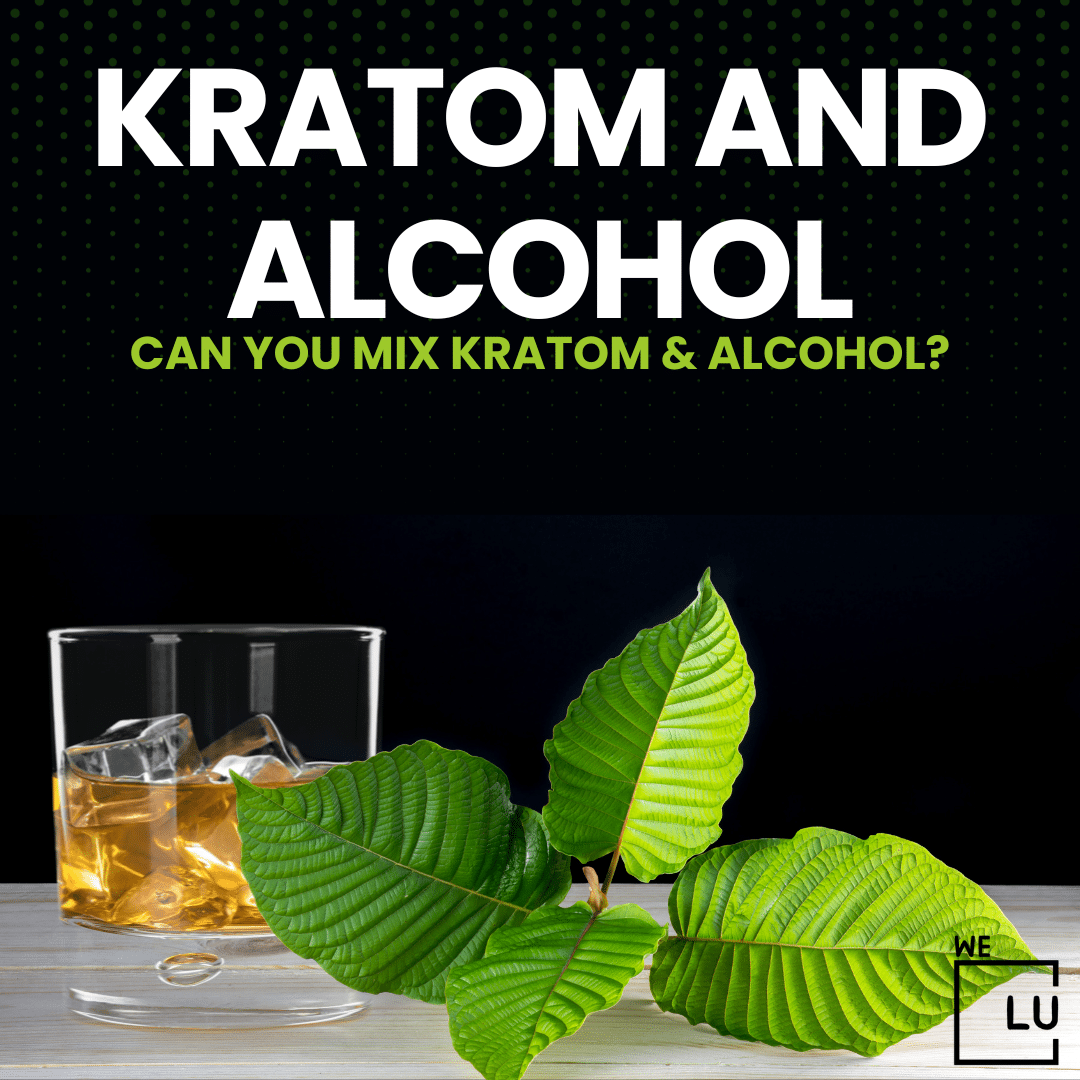Can you snort meth? The misuse of methamphetamine, a powerful and highly addictive stimulant, takes various forms, including the insidious practice of snorting. Many individuals engage in this method of administration to intensify the drug’s effects, often oblivious to the severe health risks involved.
Snorting meth accelerates the drug’s absorption through nasal tissues, leading to a rapid onset of its potent psychoactive properties. Unfortunately, this reckless misuse contributes to heightened addiction risks, cardiovascular complications, and a range of physical and mental health issues.
If you or someone you know is grappling with meth addiction and substance abuse, seeking professional help is crucial. We Level Up CA offers support and guidance for those seeking recovery from methamphetamine misuse. Call us today to take the first step towards a healthier, substance-free life.
What Is Meth?
Meth, short for methamphetamine, is a powerful and highly addictive central nervous system stimulant. It is a synthetic drug that belongs to the amphetamine class, and it has stimulant effects on the brain and body. Methamphetamine is chemically similar to amphetamine, a drug that is used to treat attention deficit hyperactivity disorder (ADHD) and narcolepsy.
Methamphetamine typically comes in the form of a white, odorless, crystalline powder or crystalline chunks known as “crystal meth.” It can be ingested orally, snorted, smoked, or injected. The drug is illicitly manufactured and sold on the streets, and it goes by various street names, including “meth,” “crystal,” “ice,” and “glass.”
Can You Snort Meth?
Methamphetamine can be snorted. Snorting, or insufflation, involves inhaling a powdered substance through the nose. When methamphetamine is crushed into a powder, it can be snorted, and the drug is absorbed through the nasal tissues into the bloodstream. This method of administration can produce a quicker onset of effects compared to oral ingestion.
Methamphetamine is a powerful stimulant that can lead to addiction and cause a range of physical and mental health issues. Snorting methamphetamine may also irritate the nasal passages and lead to damage to the respiratory system.
Can You Snort Crystal Meth?
Crystal meth, or methamphetamine in its crystalline form, can be snorted, although this method is not without risks. Snorting meth allows the drug to be absorbed through the nasal tissues into the bloodstream, resulting in a rapid onset of effects.
What Are The Dangers Of Snorting Meth?
Snorting methamphetamine, like any form of methamphetamine misuse, comes with various dangers and risks. Here are some of the potential hazards associated with snorting meth:
- Damage to Nasal Tissues: Snorting meth can cause irritation, inflammation, and damage to the nasal tissues. Chronic use may lead to nasal congestion, nosebleeds, and respiratory issues.
- Rapid Onset of Effects: While some users may seek the rapid onset of effects associated with snorting, it increases the risk of overdose and adverse reactions due to the quicker absorption of the drug into the bloodstream.
- Addiction: Methamphetamine is a highly addictive substance. Regular and repeated use, especially when snorted, can lead to the development of tolerance and dependence, increasing the risk of addiction.
- Cardiovascular Issues: Methamphetamine use, in any form, can lead to increased heart rate, elevated blood pressure, and other cardiovascular problems. Snorting may intensify these effects.
- Mental Health Risks: Methamphetamine use is associated with various mental health issues, including anxiety, paranoia, hallucinations, and aggression. Snorting meth may exacerbate these psychiatric symptoms.
- Dental Problems: Methamphetamine use is linked to severe dental issues, commonly referred to as “meth mouth.” Snorting can contribute to dry mouth and poor oral hygiene, increasing the risk of dental decay and gum disease.
- Risk of Infection: Sharing snorting paraphernalia, such as straws or bills, increases the risk of infections, including those transmitted through blood, such as HIV or hepatitis.
- Behavioral Risks: Methamphetamine misuse, regardless of the method of administration, can lead to risky behaviors, impaired judgment, and an increased likelihood of engaging in unsafe activities.
- Withdrawal Symptoms: Stopping methamphetamine use can result in withdrawal symptoms, which may include fatigue, depression, increased appetite, and intense drug cravings.

Skip To:
Learn More:
- What Does Meth Look Like? What Does Crystal Meth Look Like? Pictures of Meth.
- What Does Meth Taste Like? Identifying Meth by Taste
- Long, Short and Immediate Methamphetamine Effects
- Methamphetamine Detox, 3 Phases of Withdrawal & Treatment
- Amphetamine vs Methamphetamine, Main Differences, Stimulants Specifics, Deadly Potential & Treatment Options
- How to Cook Meth? Its Manufacturing and Cutting Processes
- What Are Meth Eyes, Meth Pupils? What Does Meth Do To Your Eyes?
The Effects Of Snorting Meth
Snorting methamphetamine results in rapid absorption of the drug through the nasal tissues, leading to intense and immediate effects. The impact of snorting meth can be both physical and psychological, contributing to the drug’s misuse and addictive potential. The following outlines some of the notable effects associated with snorting meth:
- Euphoria: Snorting meth produces a rapid and intense feeling of euphoria, characterized by increased energy, heightened alertness, and a sense of well-being.
- Increased Alertness: Users often experience a surge in alertness and focus, making them feel more awake and attentive.
- Decreased Appetite: Methamphetamine is known to suppress appetite, and snorting the drug can contribute to a significant reduction in hunger.
- Intense Pleasure: Users may experience extreme pleasure and a heightened sense of reward, contributing to the drug’s addictive potential.
- Increased Heart Rate and Blood Pressure: Methamphetamine is a potent stimulant, and snorting it can lead to a rapid increase in heart rate and blood pressure, posing cardiovascular risks.
- Dilated Pupils: Methamphetamine use, including snorting, can result in dilated pupils, a typical physiological response to stimulant drugs.
- Dry Mouth: Users may experience dry mouth, which, when combined with poor oral hygiene, can contribute to dental issues commonly associated with methamphetamine use.
- Restlessness and Agitation: Some individuals may exhibit signs of restlessness, nervousness, or agitation as a result of methamphetamine stimulation.
- Insomnia: The stimulating effects of methamphetamine can interfere with sleep patterns, leading to difficulty falling asleep or staying asleep.
- Paranoia and Anxiety: High doses of methamphetamine or prolonged use, including snorting, can contribute to increased levels of paranoia, anxiety, and even hallucinations.

Get Your Life Back
Find Hope & Recovery. Get Safe Comfortable Detox, Addiction Rehab & Dual Diagnosis High-Quality Care.
Hotline (855) 695-1160
Does Snorting Meth Increase The Risk Of Addiction?
Snorting methamphetamine can increase the risk of addiction. Methamphetamine is a highly addictive substance, and the method of administration, such as snorting, can influence the speed at which the drug reaches the brain and produces its effects.
Snorting meth allows the drug to be absorbed through the nasal tissues into the bloodstream, resulting in a rapid onset of the drug’s psychoactive effects. This quick onset can intensify the reinforcing properties of the drug, making it more likely for individuals to seek repeated use. Additionally, the faster onset of effects may contribute to a higher potential for developing tolerance and dependence, both of which are precursors to addiction.
Get Help. Get Better. Get Your Life Back.
Searching for an Accredited Drug and Alcohol Rehab Centers in Near You?
Even if you have failed previously and relapsed, or are in the middle of a difficult crisis, we stand ready to support you. Our trusted behavioral health specialists will not give up on you. When you feel ready or just want someone to speak to about therapy alternatives to change your life call us. Even if we cannot assist you, we will lead you to wherever you can get support. There is no obligation. Call our hotline today.
FREE Addiction Hotline – Call 24/7Does Snorting Meth Increase The Risk Of An Overdose?
Snorting methamphetamine can increase the risk of overdose. When methamphetamine is snorted, it is absorbed rapidly through the nasal tissues into the bloodstream, leading to a quick and intense onset of effects. This rapid absorption can result in a higher concentration of the drug in the body, increasing the risk of overdose compared to other methods of administration.
Methamphetamine overdose can have severe and potentially life-threatening consequences, including:
- Cardiovascular Issues: Increased heart rate, elevated blood pressure, and irregular heart rhythm can occur during a methamphetamine overdose, leading to cardiovascular complications.
- Hyperthermia: Methamphetamine can cause the body temperature to rise significantly, potentially leading to hyperthermia (dangerously high body temperature), which can be life-threatening.
- Psychiatric Symptoms: Overdose may cause severe psychiatric symptoms, including extreme anxiety, paranoia, hallucinations, and aggression.
- Seizures: Methamphetamine overdose can trigger seizures, posing additional risks to the individual’s health.
- Organ Failure: In severe cases, methamphetamine overdose can lead to organ failure, particularly affecting the kidneys.
The risk of overdose is influenced by various factors, including the purity and potency of the drug, an individual’s tolerance, and their overall health. Combining methamphetamine with other substances, such as alcohol or other drugs, can further increase the risk of overdose.

First-class Facilities & Amenities
World-class High-Quality Addiction & Mental Health Rehabilitation Treatment
Rehab Centers TourRenowned California Addiction Center. Serene Private Facilities. Inpatient rehab programs vary.
Addiction Helpline (855) 695-1160Proven recovery success experience, backed by a Team w/ History of:
15+
Years of Unified Experience
100s
5-Star Reviews Across Our Centers
10K
Recovery Success Stories Across Our Network
- Low Patient to Therapist Ratio
- Onsite Medical Detox Center
- Comprehensive Dual-Diagnosis Treatment
- Complimentary Family & Alumni Programs
- Coaching, Recovery & Personal Development Events

Can You Get Withdrawals From Snorting Meth?
Individuals who have been regularly using methamphetamine, including through snorting, can experience withdrawal symptoms when they stop or significantly reduce their use. Methamphetamine withdrawal symptoms can be both physical and psychological and may include:
- Fatigue: Users may experience extreme tiredness and lethargy during withdrawal.
- Increased Appetite: Some individuals may notice an increase in appetite as they come off methamphetamine.
- Depression: Feelings of sadness, hopelessness, and lack of motivation are common during withdrawal.
- Increased Sleep: Individuals may sleep more than usual, experiencing hypersomnia.
- Vivid Nightmares: Withdrawal from methamphetamine can be associated with intense and vivid dreams or nightmares.
- Irritability: Mood swings, irritability, and agitation are common psychological symptoms of withdrawal.
- Anxiety: Some individuals may experience heightened anxiety and restlessness during withdrawal.
- Difficulty Concentrating: Cognitive challenges may include trouble concentrating and impaired memory.
- Drug Cravings: Persistent cravings for methamphetamine are a common feature of withdrawal.
Methamphetamine withdrawal can be challenging, and professional support is often recommended. Supervised withdrawal management and comprehensive treatment programs, which may include counseling, behavioral therapy, and support groups, can increase the likelihood of successful recovery.
World-class, Accredited, 5-Star Reviewed, Effective Addiction & Mental Health Programs. Complete Behavioral Health Inpatient Rehab, Detox plus Co-occuring Disorders Therapy.
CALL (855) 695-1160End the Addiction Pain. End the Emotional Rollercoaster. Get Your Life Back. Start Drug, Alcohol & Dual Diagnosis Mental Health Treatment Now. Get Free No-obligation Guidance by Substance Abuse Specialists Who Understand Addiction & Mental Health Recovery & Know How to Help.
How Is Meth Misused?
Misuse of methamphetamine involves taking the drug in ways that are not prescribed by a medical professional or using it for non-medical reasons. Here are some common ways in which people may misuse meth:
- Smoking: Methamphetamine can be heated and smoked, delivering the drug rapidly to the brain. This method produces an intense and immediate high.
- Snorting: Some individuals crush methamphetamine into a powder and snort it through the nose. This method allows the drug to be absorbed through the nasal tissues, producing a quicker onset of effects than oral ingestion.
- Injecting: Methamphetamine can be dissolved in water and injected into the bloodstream. This method produces an intense and rapid high but carries significant health risks, including the potential for infections and the transmission of bloodborne diseases.
- Oral ingestion: Although some individuals take methamphetamine orally as prescribed by a doctor for medical conditions like attention deficit hyperactivity disorder (ADHD) or obesity, others may misuse the drug by taking larger doses or using it without a prescription.
- Binging: Some individuals engage in a pattern of drug use known as “binge and crash,” where they repeatedly take large doses of methamphetamine over a short period, staying awake for days at a time. This can lead to severe physical and mental health issues.
- Polydrug use: Some people may combine methamphetamine with other substances, such as alcohol or other drugs, to enhance the effects or counteract unwanted side effects. This can increase the risk of adverse reactions and health complications.
The misuse of methamphetamine can have severe consequences for physical and mental health, including addiction, cardiovascular problems, dental issues (“meth mouth”), anxiety, paranoia, and hallucinations. Additionally, long-term misuse can lead to severe psychiatric problems and cognitive deficits.
Experience Transformative Recovery at the We Level Up California Treatment Center.
See our authentic success stories. Get inspired. Get the help you deserve.



Start a New Life
Begin with a free call to an addiction & behavioral health treatment advisor. Learn more about our dual-diagnosis programs. The We Level Up treatment center network delivers recovery programs that vary by each treatment facility. Call to learn more.
- Personalized Care
- Caring Accountable Staff
- World-class Amenities
- Licensed & Accredited
- Renowned w/ 100s 5-Star Reviews
We’ll Call You
How to stop Drinking? Top 10 Tips to Sober Up from Alcohol, Weed, Meth, Cocaine and More.
Search We Level Up CA Can You Snort Meth, Drug & Alcohol Rehab / Detox & Mental Health Topics & Resources
Sources
- What treatments are effective for people who misuse methamphetamine? | National Institute on Drug Abuse (NIDA) (nih.gov) – https://nida.nih.gov/publications/research-reports/methamphetamine/what-treatments-are-effective-people-who-misuse-methamphetamine
- Patterns and Characteristics of Methamphetamine Use Among Adults — United States, 2015–2018 | MMWR (cdc.gov) – https://www.cdc.gov/mmwr/volumes/69/wr/mm6912a1.htm
- Know the Risks of Meth | SAMHSA – https://www.samhsa.gov/meth
- Neurologic manifestations of chronic methamphetamine abuse – PMC (nih.gov) – Rusyniak DE. Neurologic manifestations of chronic methamphetamine abuse. Neurol Clin. 2011 Aug;29(3):641-55. doi: 10.1016/j.ncl.2011.05.004. Epub 2011 Jun 24. PMID: 21803215; PMCID: PMC3148451.
- Drug Fact Sheet: Methamphetamine (dea.gov) – https://www.dea.gov/sites/default/files/2020-06/Methamphetamine-2020_0.pdf
- How Long Does Meth Stay In Your System? – 7 Stages & Effects (welevelup.com) – https://welevelup.com/addiction/how-long-does-meth-stay-in-your-system/
- Methamphetamine DrugFacts | National Institute on Drug Abuse (NIDA) (nih.gov) – https://nida.nih.gov/publications/drugfacts/methamphetamine
- Methamphetamine Research Report: Overview | NIDA (nih.gov) – https://nida.nih.gov/publications/research-reports/methamphetamine/overview
- Meth Overdose Deaths Surge | NIH Record – https://nihrecord.nih.gov/2021/10/29/meth-overdose-deaths-surge
- Trends in U.S. methamphetamine use and associated deaths | National Institutes of Health (NIH) – https://www.nih.gov/news-events/nih-research-matters/trends-us-methamphetamine-use-associated-deaths Read More: Pink Meth, Pink Crystal Meth




